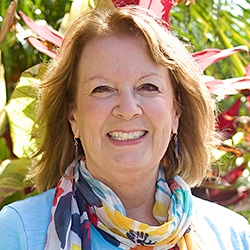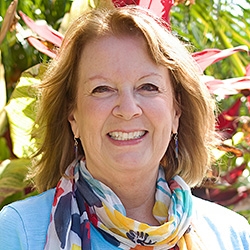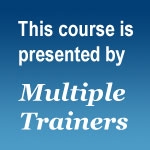
Search Results: mediation
-
This Introduction to NVC Mediation provides a conceptual overview and experiential taste of the NVC mediation learning model developed by John Kinyon and Ike Lasater.
-
CNVC Certified Trainer, Yoram Mosenzon has a vision… he sees mediation as a basic life skill that could be taught in schools starting at the age of three. He dreams of a world where all human beings have mediation skills to support understanding, cooperation, and connection when conflicts arise.
-
- Discover how mediation is a fundamental social skill that everyone can learn
- Gain the skills to stay centered when a conflict becomes heated
- Learn how to lead a dialogue toward sustainable agreements
- Help facilitate connection and creativity to discover and meet everyone’s needs
-
This telecourse recording provides an experience with the language, skills and consciousness of NVC applied to mediating all types of conflict whether you are one of the people in conflict or you are supporting others in conflict.
-
Trainer Tip: People struggle to come to agreement when they don’t feel heard. So as a mediator, facilitate the process by asking all parties to reflect the essence of what's important to other parties. This is critical. Once everyone is confident that their needs have been heard, you'll notice the energy in the room relaxing. Then you can brainstorm strategies that will value everyone’s needs, and are focused on what they want to happen.
-
-
Mediating a conflict conversation can be challenging – but with tools and practice, that challenge can be transformed. If you're curious about the specific steps needed to achieve that transformation, join John for an exploration of his non-dual mindfulness practice.
-
Yoram Mosenzon shares that the role of a mediator is often misconceived as solving conflicts, which can create stress and exacerbate the conflict. Instead, the true essence of mediation is about remaining untriggered, understanding the pain of the conflicting parties, and facilitating communication.
-
Jeff shows us how to emply NVC to supercharge the possibility of transformation between two people in a mediation process.
-
Trainer Tip: When there's conflict if you set the intention to connect and build trust first, you're more likely to move towards resolution. This can be built through offering reflections that captures essence of what's important to each party. Once connection and trust is established, then begin the process of creating strategies and solutions.
-
In this stimulating audio recording, Stephanie Mattei covers several "hot" parenting topics such as: boundary issues, strategy resilience, how to shift your right/wrong mentality and understanding the concept of fairness. While unraveling these topics, Stephanie intersperses some practical neuroscience around brain regulation and brain-wise conflict prevention.
-
When you have intrusive thoughts about yourself and feel ‘crummy,’ Ike recommends using the Chooser / Educator map as a guide to lead you out of the primitive part of your brain and back to your prefrontal cortex. Both the Chooser and the Educator want to contribute to your well being, but in different ways. This map facilitates having a positive conversation with them.
-
-
Listen to this introductory 4-session Mediate Your Life telecourse recording to change your response to conflict and change your life.
-
Mediation is a great skill to have whether it's for your personal relationships or in the workplace. We look at four different techniques and their benefits in a role-play between two neighbours discussing a dispute.
-
Mediation is a great skill to have whether it's for your personal relationships or in the workplace. We look at four different techniques and their benefits in a role-play that takes place in an informal, unorganised setting.
-
Join CNVC Certified Trainers and Mediators Jori and Jim Manske in an exploration of using Nonviolent Communication in the context of Mediation and Conflict Resolution.
-
Old emotional hurts and pains can easily erupt when you’re in the throes of conflict – even if you’re the mediator. Wouldn’t it be lovely if you could avoid all of that, and instead create more peace and happiness for yourself, your family, your co-workers and your community?
-
This 6-session telecourse recording focuses on supporting people who work with children (e.g. parents, teachers, ministers, etc.) in applying the skills of NVC mediation in conflict situations that involve children.
-
John and Stephanie combine mediating conflict, parenting and study of brain science to this ground-breaking course recording on how to funnel your anger and your child’s anger toward mutual caring and peace.
















